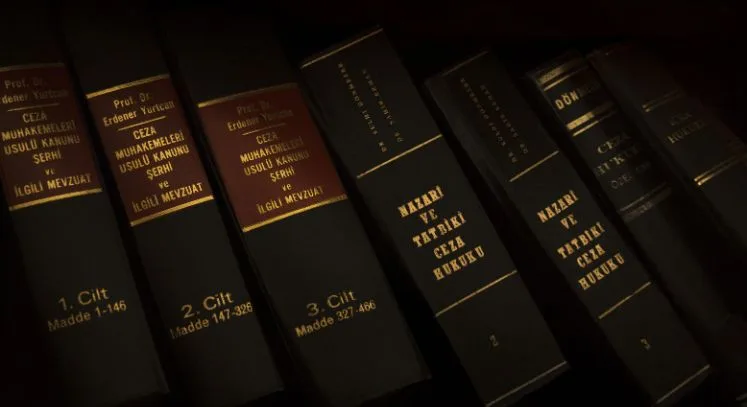This article will explore how Professor Chong Wu “C.W.” Park’ journey through the legal landscape filed a lawsuit against the University of Southern California (USC) and two of his colleagues. Here is the detailed note on this complex case involving details basis of lawsuit, allegations, the university’s response, and implications..
Lawsuit Basis
In his lawsuit, Professor Park alleges that USC and two senior colleagues – Professors Richard Brutchey and Scott Fraser – conspired to push him out of the university in recent years due to his South Korean nationality and age (mid-60s). The lawsuit claims they made defamatory statements about Professor Park’s research and commitment to grant funding rules, blocked his lab space requests, and worked to remove him from decision-making committees within his department. After a demotion from the chair position in 2020, Professor Park argues he experienced retaliation through excessive oversight and scrutiny from Professor Brutchey in his new administrative role overseeing Professor Park’s research lab.
The lawsuit also points to Professor Park’s salary as evidence of alleged discrimination, with records showing his compensation falling below multiple junior faculty within his department. With other ongoing disputes around intellectual property, decisions about a merger with another department, and the university denying Professor Park’s proposal to use unallocated discretionary funds for his research in late 2020, the legal complaint argues there were clear signs of bias and retaliation. Professor Park decided to take legal action in early 2021 after allegedly unsuccessful internal efforts to resolve these issues directly with the USC administration.
How Has USC Responded to the Lawsuit?
USC declined to comment directly on the pending litigation but provided a general statement standing by its commitment to diversity:
“USC strongly rejects any accusations of discriminatory actions. We welcome people of all backgrounds and beliefs to advance our mission of teaching, research, and patient care, and we have extremely diverse faculty serving as chairs across the university. We will vigorously defend our actions and our commitment to equity and inclusion.”
While not addressing specifics, this statement reinforces USC’s belief it has treated Professor Park fairly and disputes the allegations of unlawful discrimination outlined in the lawsuit. With two respected senior professors also named defendants alongside the university, USC is signaling united confidence in its defense against Professor Park’s claims.
What are the Broader Implications?
Beyond the critical personal and professional stakes for Professor Park and the named defendants, this lawsuit also raises larger issues about systemic barriers faculty from underrepresented backgrounds may face. As one of a small number of South Korean professors at USC during his long tenure, Professor Park’s complaints allege possible subtle and overt discrimination often difficult to prove on paper.
Academic science fields also frequently struggle with ageism concerns, posing obstacles for
accomplished senior researchers like Professor Park to receive continued high-level funding and leadership roles. Combining ethnicity and age discrimination, while speculative without further legal proceedings, presents complex challenges universities must continually reassess. Clear evidence would be required to substantiate Professor Park’s allegations in court, but the case still highlights the importance of vigilant equity programs and controls at elite research institutions receiving substantial public funds.
Intricate Details Still Emerging
This overview provides context around the intricate details underpinning an emerging legal battle between a renowned South Korean professor and his former employer, USC. As the lawsuit progresses, more specifics surrounding Professor Park’s historic treatment within USC and the defense rationale used to justify key decisions will help substantiate or refute claims of discrimination and retaliation. Motivations matter when reputations and critically limited research funding are at stake, so all sides have the incentive to vigorously clarify their positions in upcoming court proceedings.
The intricacies around exactly why Professor Park’s seemingly successful USC career collapsed into acrimony and allegations remain murky for outside observers. But within those unresolved details lie vital lessons about providing equitable opportunities for diverse scholars to unlock their full academic potential without fear of bias – at USC and peer institutions across America. Resolving this dispute fairly and transparently while limiting further conflict remains the challenge ahead for all those invested in the outcome.
Effects and Outcomes
The C.W. Park case had significant repercussions for both USC specifically and academic medicine more broadly:
- The scandal demonstrated systemic issues with reporting, investigating, and preventing sexual harassment and substance abuse within university settings. Many called for stronger accountability and survivor-centered policies.
- Following the exposé, USC’s president, medical school dean, and other top leaders resigned over their failure to take earlier action against Puliafito and Tyndall’s misconduct.
- In response to mounting criticism and lawsuits, USC announced policy reforms covering sexual violence education, reporting procedures, and personnel evaluations. Other universities faced pressure to reassess their practices as well.
- The case amplified the #MeToo movement in medicine, shedding light on rampant problems of gender discrimination against female clinicians and trainees. It fueled activism around women’s rights, inclusion, and institutional change.
- For C.W. Park personally, the case resolution provided some justice and closure after nearly a decade of seeking accountability. Her brave actions propelled increased awareness around these critical issues.
The C.W. Park case leaves a complex legacy. While inspiring positive change, it also reveals how much further we have to go to promote equal opportunity, diversity, safety, and dignity across academic medicine.
Conclusion
The lawsuit brought by C.W. Park against USC and Dr. Puliafito marked a pivotal moment bringing issues of sexual misconduct, substance abuse, and institutional accountability in academic medicine to the forefront of public consciousness. As one of the first prominent #MeToo cases in higher education, its effects continue to reverberate, highlighting the challenges still facing women across many disciplines. Though a difficult personal journey for Park, her perseverance led to policy changes, legal payouts, and high-level resignations at USC, while also fueling activism around gender equity and inclusion across academia. This case teaches us that speaking truth to power can have sweeping impacts, but institutional change often comes slowly – requiring continued advocacy to reform entrenched social problems and fulfill the promise of safe, just educational spaces for all.
FAQs
What were the parties’ outcomes?
Puliafito was fired by USC and sentenced to probation after pleading guilty to drug charges. USC settled with Park for $215,000 and later agreed to pay over $1 billion settling hundreds more misconduct lawsuits.
How did the case impact USC?
It triggered major turnover in USC leadership, policy changes around misconduct reporting and a host of reputational and financial damages for the university.
What are broader implications?
The case raises larger issues about subtle systemic barriers faculty from minority backgrounds may face regarding areas like funding, lab space, salaries, and leadership roles – especially later in their careers. It also highlights the need for robust equity programs at universities.
What details are still unclear about the case?
Many intricacies around why Professor Park’s seemingly successful career at USC unraveled remain murky. More details would help substantiate or refute his discrimination claims and understand the defense rationale behind key decisions impacting him.






